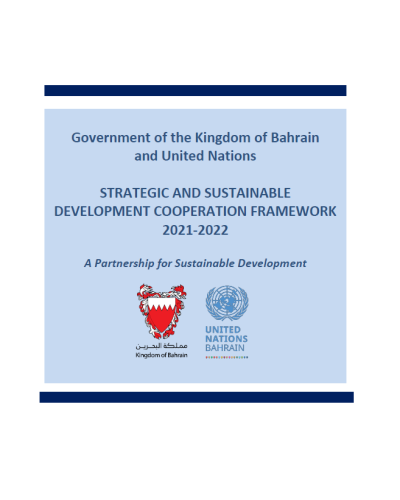Strategic and Sustainable Development Cooperation Framework (2021-2022)

The Government of Bahrain (GoB) and the United Nations (UN) Strategic and Sustainable Development Cooperation Framework (SCF) is a partnership for achieving results for all people in Bahrain. The SCF describes four priorities and expected outcomes, along with related strategies and indicators for success and how these will contribute to country strategic priorities in the Bahrain Economic Vision 2030, the Government Programme (GP) for the period 2019-2022, and related Sustainable Development Goals (SDGs) and targets. It is also both informed by, and strongly aligns with, the five streams of work outlined in the UN Framework for the Immediate Socio-Economic Response to COVID-19, which includes;
- Health First;
- Protecting People;
- Economic Response and Recovery;
- Macroeconomic Response and Multilateral Collaboration; and
- Social Cohesion and Community Resilience.
This SCF represents an update to the previous Strategic Partnership Framework, signed in October 2017. This was done to ensure full alignment with the priorities in the new Government Programme for the period 2019-2022 and related biennium budgets. The expected cooperation results and strategies have been adjusted to respond to the coronavirus disease (COVID-19) pandemic and its impacts.
The SCF priorities and outcomes were validated in a series of consultations between the Government, the UN system agencies, and country stakeholders. In line with the 2030 Agenda for Sustainable Development, none of the priorities and outcomes concerns a single sector or single-stakeholder. Rather they represent a nexus of inter-connected changes that respond to country challenges and that will make tangible contributions to the central goals of the Economic Vision 2030 and GP:
- Transformation toward a highly diversified, competitive, and sustainable economy
- Fairness and sustainability in society, ensuring employment and higher wages in a
- safe and secure living environment
- Ensure that every Bahraini household has at least twice as much disposable income – in real terms – by 2030.





















